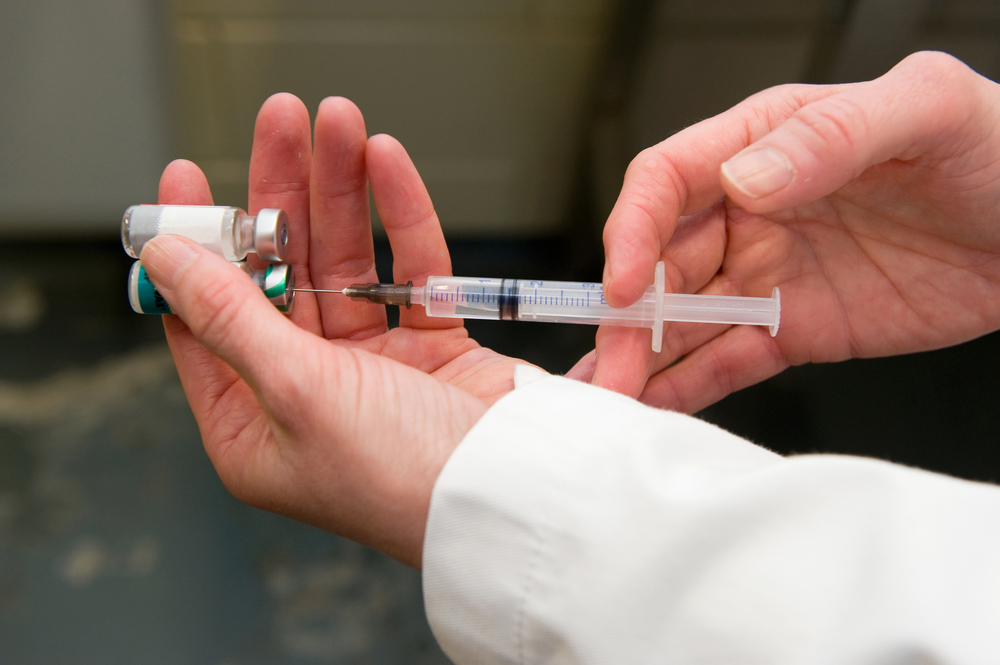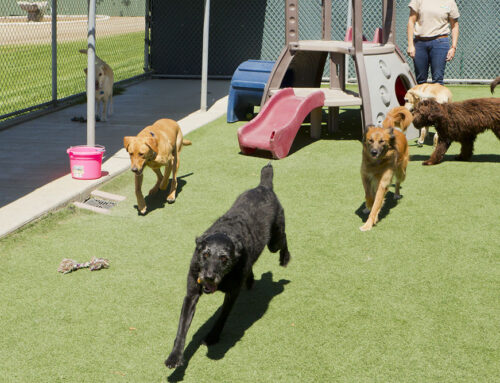Vaccinations help prevent many harmful diseases that can cause serious health consequences for your pet, and ensuring your four-legged friend’s vaccines are up to date is one of the easiest ways to keep them healthy and happy. Our Animal Clinic of Council Bluffs team knows some pet owners have concerns about inoculations, so we answer frequently asked questions about pet vaccinations.
What are pet vaccines?
Vaccines are injections that teach the immune system to fight microorganisms it may encounter in the future. By introducing the pathogen in an altered state, your pet’s body learns to recognize the virus or bacteria and effectively counteract the infection. This helps prevent infection or lessen the severity of signs. Pet vaccine categories include:
- Attenuated — The pathogenic microorganism is weakened or altered so it can’t harm your pet, but can still stimulate protective immunity.
- Inactivated — The pathogenic microorganism is killed or otherwise inactivated to become harmless. An added ingredient is typically included in the vaccine to stimulate a longer immune response.
- Recombinant — A small DNA piece is taken from a pathogen and inserted in manufacturing cells to stimulate an immune response.
Why does my puppy or kitten need so many vaccines?
Puppies and kittens should start their vaccines at 6 to 8 weeks of age, and receive boosters every two to four weeks until they are 16 weeks old. This regimen is important, because puppies and kittens are highly susceptible to infectious diseases, since their immune system hasn’t matured sufficiently to protect them.
When they are born, puppies and kittens are protected by antibodies from their mother’s milk, but this protection gradually wanes. However, the time when the protection fades is extremely variable, and the mother’s antibodies counteract the vaccine if still present. A series of shots ensures your puppy or kitten is protected as soon as possible after the mother’s antibodies wane.
What vaccines does my pet need?
Vaccines are classified as core and non-core. All pets need core vaccines, while non-core vaccines are recommended based on your four-legged friend’s lifestyle and disease risk.
Core vaccines for dogs include:
- Canine distemper
- Canine parvovirus
- Canine adenovirus-2
- Rabies
Non-core vaccines for dogs include:
- Leptospirosis
- Lyme disease
- Canine parainfluenza virus
- Canine influenza
- Bordetella bronchiseptica (i.e., kennel cough)
Core vaccines for cats include:
- Feline panleukopenia virus
- Feline viral rhinotracheitis
- Feline calicivirus
- Rabies
- Feline leukemia virus—for kittens only
Non-core vaccines for cats include:
- Chlamydophila felis
- Bordetella bronchiseptica
- Feline leukemia virus—for adult cats
Why does my pet need an examination before their vaccinations?
When you schedule your pet’s vaccination appointment, you may expect that the veterinarian will quickly administer the shots and see you on your way. However, examining your pet first is important to their health and well-being, because our team needs to ensure that your pet is healthy enough to receive the vaccinations. We also use this time to detect any underlying illnesses that may affect your pet, since dogs and cats are excellent at hiding illness and pain signs. In addition, veterinary governing bodies require an established Veterinary Client-Patient Relationship (VCPR) before we diagnose, treat, or prescribe medication to any pet and this involves a thorough physical examination.
Do vaccines provide 100% immunity for my pet?
Vaccines are extremely effective at protecting your pet from infectious diseases, but no vaccine provides 100% immunity. However, most vaccinated pets who become infected have milder disease. Reasons vaccines can fail include:
- Maternal interference — When puppies and kittens are vaccinated before their mother’s antibodies wane, their immune system can’t respond appropriately to the vaccine.
- Incomplete immune response — Some pets don’t respond as well to vaccines, so immunity may be less strong or shorter lived than expected.
- Immune suppression — Immunocompromised pets and those receiving immunosuppressive drugs, such as anti-cancer drugs, are more susceptible to infection, regardless of their vaccination status.
- New pathogen strains — Bacteria and viruses can evolve into new strains that current vaccines do not cover.
Why do pets get the same amount of vaccine regardless of their size?

Some pet owners wonder why their two-pound Yorkie gets the same vaccine dose as a 90-pound rottweiler. It’s a fair question, since their antibiotic and parasite prevention doses are different. However, vaccinations don’t work the same as those medications. Vaccines stimulate an immune response, so the body knows to produce the appropriate antibodies when encountering a pathogen. A “critical mass” of antigen is required to stimulate this response, which is the same for all pets, regardless of size. In addition, smaller vaccine doses don’t correlate with decreased vaccine reactions, so it’s best to adhere to the vaccine label directions and administer the recommended dose.
If your pet is due for their vaccinations or you have questions about their vaccine schedule, contact our Animal Clinic of Council Bluffs team today.






Leave A Comment